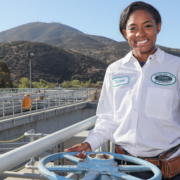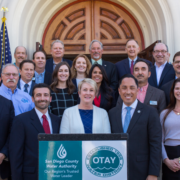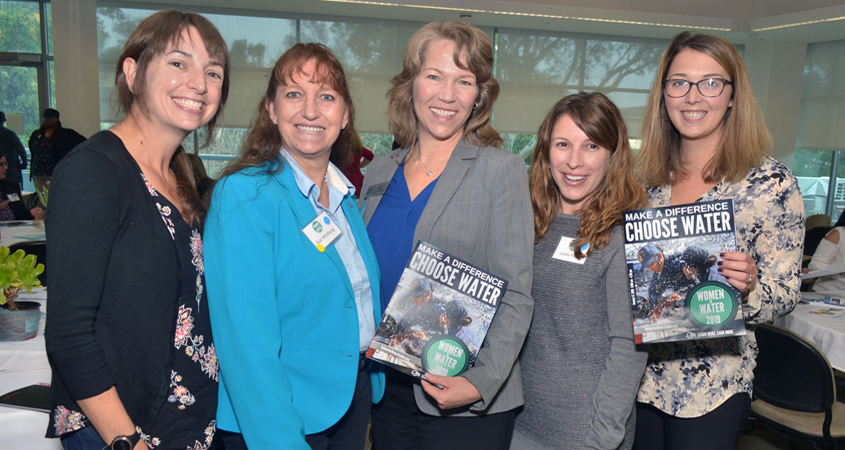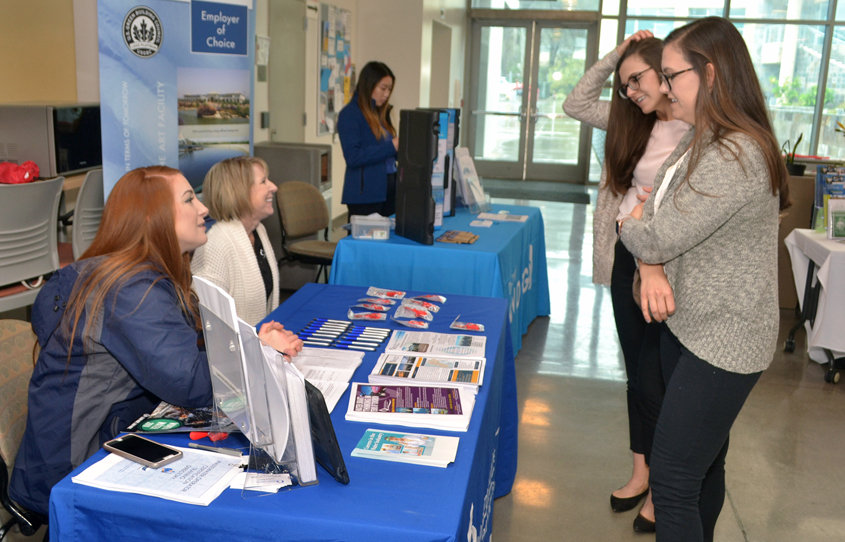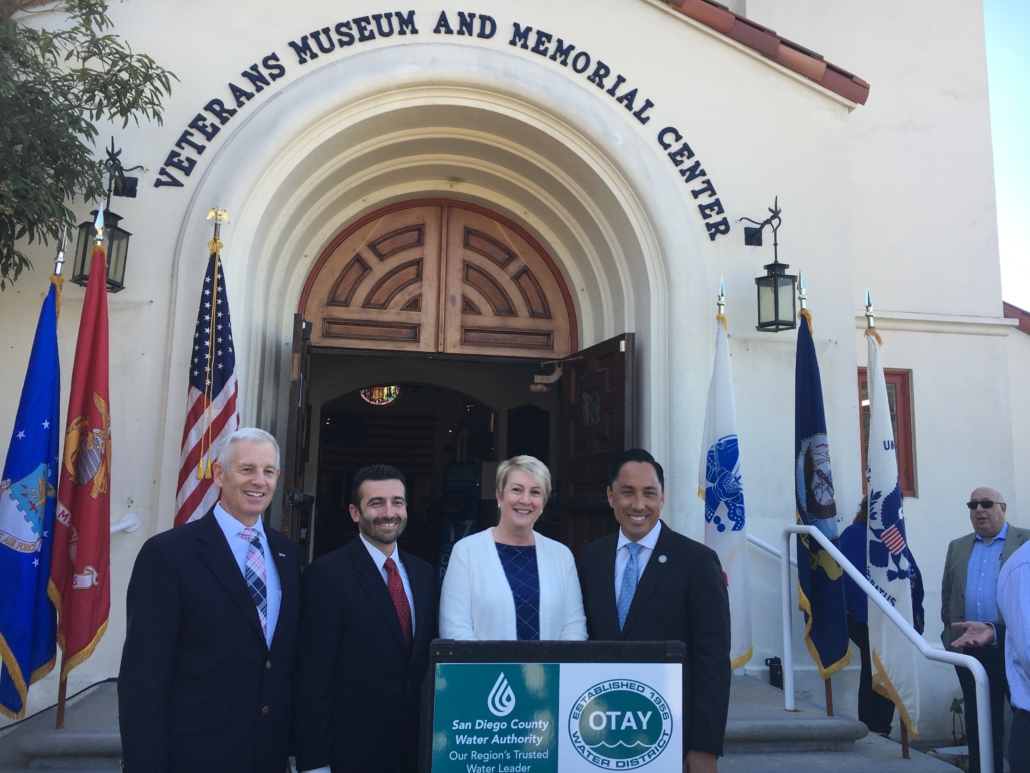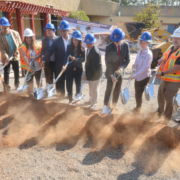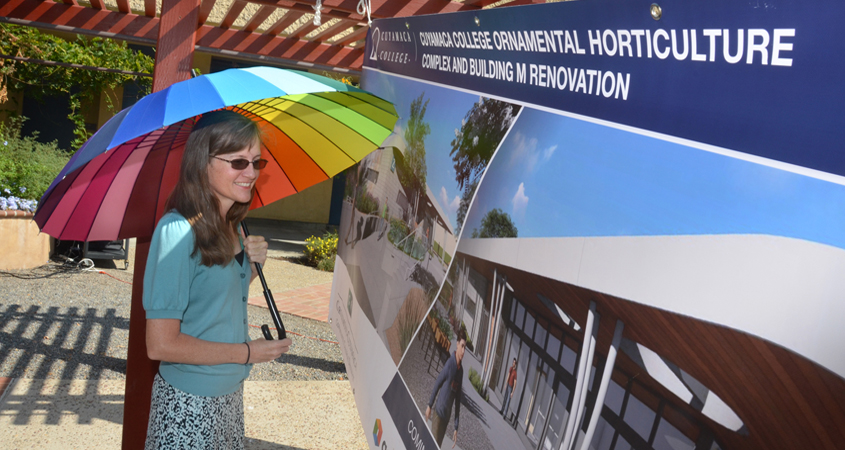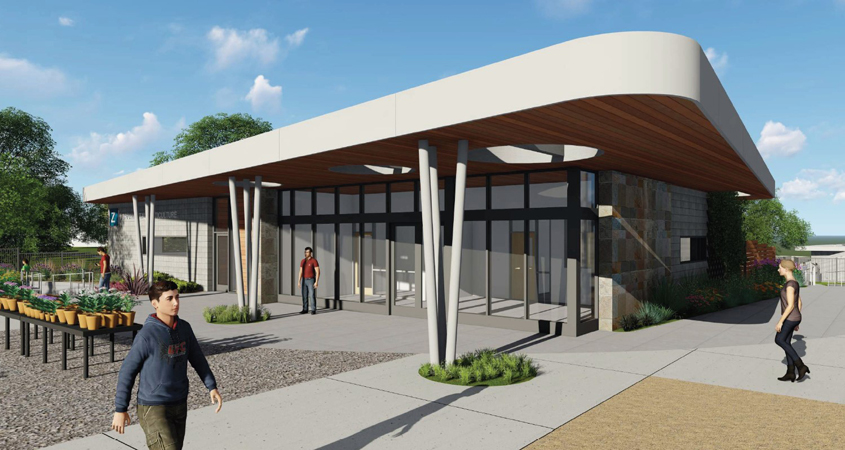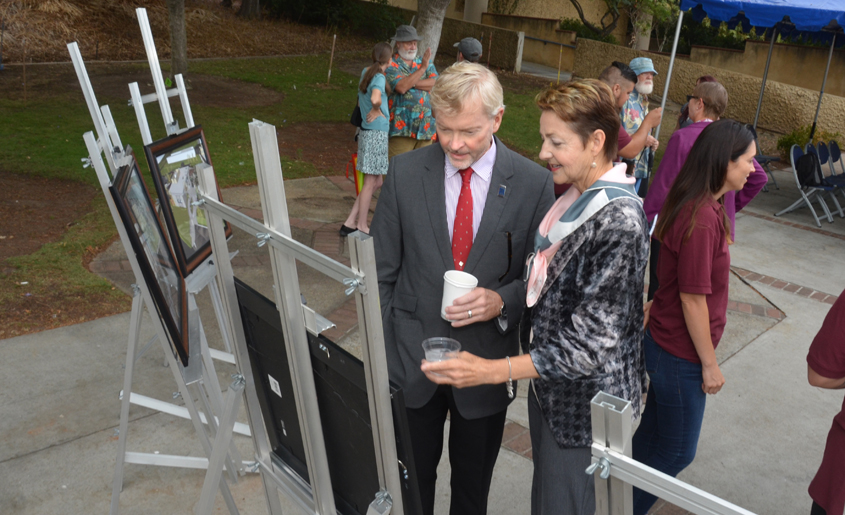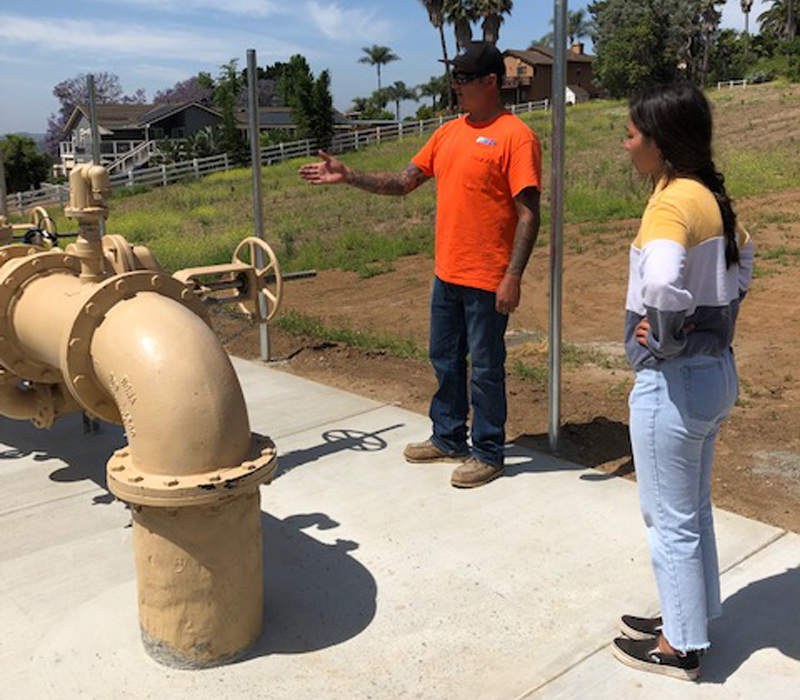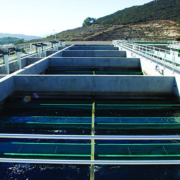San Diego Water Works Website Offers One-Stop Shop for Water Industry Jobs
The San Diego County Water Authority and its 24 member agencies have launched a new website – SanDiegoWaterWorks.org – that provides the first comprehensive posting of regional water and wastewater industry job openings in one location.
As the San Diego economy begins recovering from recession, the site features expanded job opportunities and regularly updated information about internships and training opportunities – a one-stop-shop for anyone interested in a new career or a new role in the water industry.
San Diego Water Works was created to help meet the growing need for skilled water industry workers at a time when retirements are reducing the workforce. The site is the result of a regional water industry task force convened to address the “silver tsunami” of Baby Boomers.
“We want to fill the pipeline with new generations of talent,” said Water Authority General Manager Sandra L. Kerl. “This is an industry that can really benefit from people with a diversity of backgrounds and educational experiences.”
Website created to fill openings created by wave of water industry retirements
While some water agencies have reduced hiring during the pandemic, roughly half of the current water industry workforce in the San Diego region will be eligible to retire in the next 15 years and many of those workers are in essential positions. In just the next five years, about 1,400 water and wastewater industry jobs are expected to open across the region. In addition to engineers and plant operators, the industry relies on technicians, accountants, electricians, mechanics, information technology specialists and many other occupations.
“The water industry offers careers that are not only personally and professional rewarding but also are vital for our region,” said Christopher McKinney, the City of Escondido’s Director of Utilities, and chair of the regional task force. “This is a chance to really make a difference in our community.”
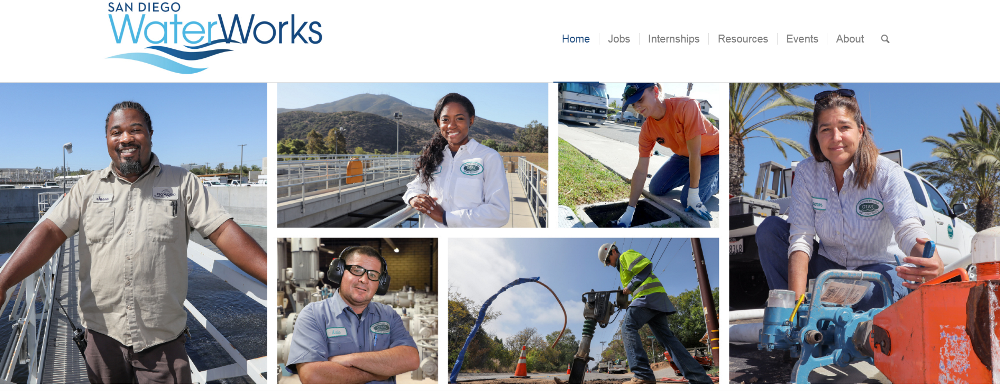
The San Diego Water Works website was created to help meet the growing need for skilled water industry workers at a time when retirements are reducing the workforce.
The San Diego Water Works website includes:
- Current water and wastewater job postings in the San Diego region
- Training and education resources, career advice and internship programs
- Featured jobs that highlight rewarding careers in the water industry
- Information about special training programs and internships for military veterans
The new website aligns with the priorities of water agencies in San Diego County to help military veterans find jobs in the water and wastewater industry. State legislation co-sponsored by the San Diego County Water Authority and the Otay Water District was signed into law in 2019, making it possible for veterans to receive credit for their military education and experience when applying for civilian water and wastewater system operator certifications in California.
“More than 15,000 military personnel transition from active duty each year in San Diego County, and many have the skills and experience that match the needs of regional water industry employers,” said Jose Martinez, Otay Water District general manager, U.S. Navy veteran and a member of the regional workforce development task force. “As a veteran, I understand the importance of a website like this; it is a great starting point for veterans to find jobs and training programs as well as to discover what resources are available in the industry.”

